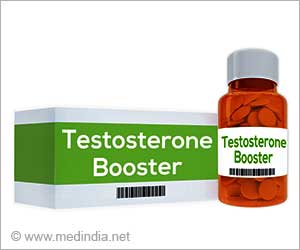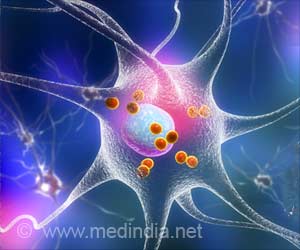Excessive sugar intake can reduce testosterone and impact hormonal health, raising concerns for male fertility.
- Excessive sugar consumption may negatively impact testosterone levels, potentially affecting male fertility
- High sugar intake can lead to insulin resistance, inflammation, and increased body fat, all of which can disrupt hormone regulation
- Maintaining a balanced diet with whole foods and limiting junk food is crucial for supporting reproductive health and hormone balance
Consuming 75 grams of sugar can lower testosterone levels by 25% for up to two hours, potentially impacting male hormone balance and fertility. #health #nutrition #hormones #medindia’
What is Testosterone?
Testosterone is an important hormone in males that regulates a variety of tasks, including the development of male reproductive tissues as well as the maintenance of muscular mass and bone density (1✔ ✔Trusted SourcePhysiology, Testosterone
Go to source). "Low testosterone levels are linked to loss of bone density and fractures," stated Dr. Surabhi Siddhartha, consultant.
Does Sugar Affect Testosterone Levels?
"Any significant decline in testosterone levels can potentially impact fertility," said Dr. Bhavna Banga, clinical director of reproductive medicine and IVF at Cloudnine Group of Hospitals in Noida and Kailash Colony. While there is evidence associating excessive sugar consumption with a variety of health issues, including potential effects on testosterone levels, the specific claim may require further investigation to confirm its truth, stated Dr. Banga. Regarding the association between sugar consumption and testosterone levels, Dr. Banga stated that research indicates that excessive sugar consumption may have a negative impact on hormone levels, including testosterone (2✔ ✔Trusted SourceSugar-sweetened beverage intake and serum testosterone levels in adult males 20-39 years old in the United States
Go to source).
Causes of Hormonal Abnormalities
Insulin resistance:
Excess sugar consumption can cause insulin resistance, a condition in which cells become less sensitive to insulin. According to Dr. Banga, this can disturb hormone control and potentially impact testosterone production.Increased fat storage:
Excess sugar can lead to weight gain and increased body fat, particularly in the abdomen. "Higher body fat levels are associated with lower testosterone levels," stated Dr. Banga.Inflammation:
Sugar consumption can cause inflammation in the body, interfering with hormone production and regulation.Leptin resistance:
Leptin is a hormone that controls hunger and metabolism. "High sugar intake can lead to leptin resistance, which may indirectly impact testosterone levels," stated Dr. Banga.While excessive sugar consumption can have negative health consequences, including potential effects on fertility and hormone levels, "the exact threshold and magnitude of this effect may vary among individuals and depend on various factors such as overall diet, lifestyle, and genetic predisposition," stated Dr. Banga.
Why is Junk Food an Issue?
Obesity and hormone imbalances:
Junk food, with its high calorie, low-nutrient profile, frequently contributes to obesity and metabolic abnormalities. "Excess body fat, especially around the abdomen, can disrupt hormone production and increase estrogen levels relative to testosterone, negatively impacting fertility," stated Dr. Banga.Insulin resistance:
Regular junk food consumption adds to insulin resistance, which can lead to type 2 diabetes. Dr. Banga said that insulin resistance might disrupt hormone balance and affect reproductive function.Inflammation:
Junk food is linked to chronic inflammation, which can impair sperm quality and reproductive health.Nutrient deficiencies:
A diet high in junk food depletes critical nutrients such as vitamins, minerals, and antioxidants required for proper reproductive function. "Deficiencies in these nutrients can impair sperm production and quality," stated Dr. Banga.Environmental toxins:
Processed junk food frequently contains additives and preservatives that may have a harmful impact on reproductive health.A well-balanced and healthy diet is vital for reducing these consequences and supporting male fertility. Emphasize entire meals such fruits, vegetables, lean proteins, whole grains, and healthy fats, while limiting your intake of processed and sugary foods. "Regular physical activity, maintaining a healthy weight, and avoiding smoking and excessive alcohol consumption are also critical factors in promoting reproductive health," stated Dr. Banga.
References:
- Physiology, Testosterone - (https://pubmed.ncbi.nlm.nih.gov/30252384/)
- Sugar-sweetened beverage intake and serum testosterone levels in adult males 20-39 years old in the United States - (https://rbej.biomedcentral.com/articles/10.1186/s12958-018-0378-2)
Source-Medindia















